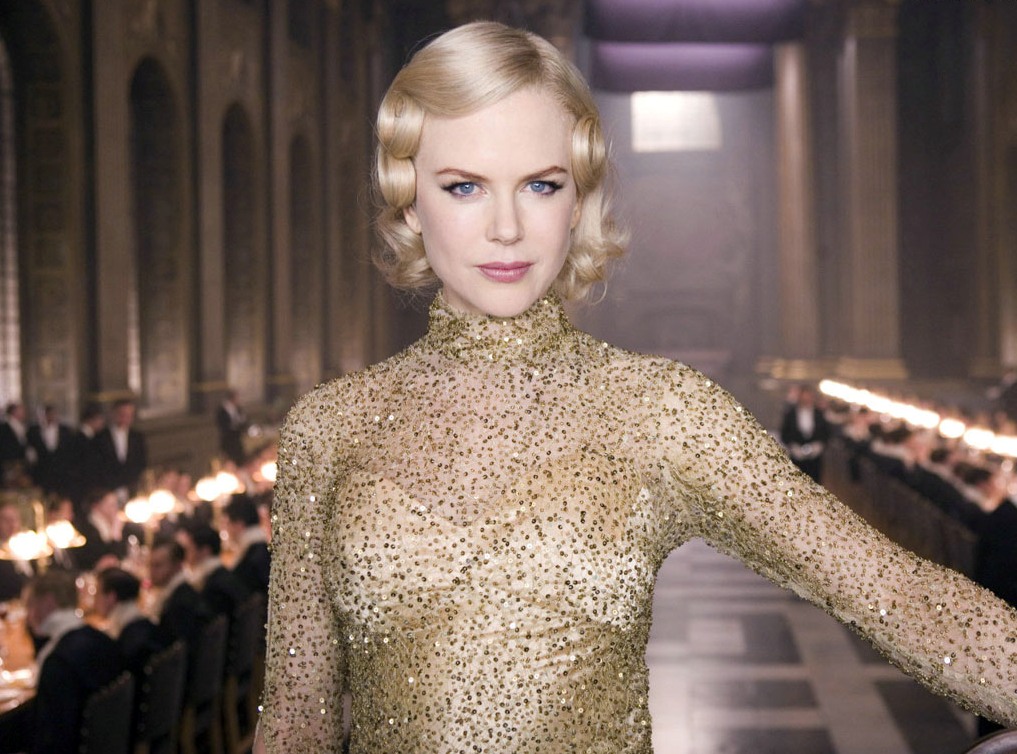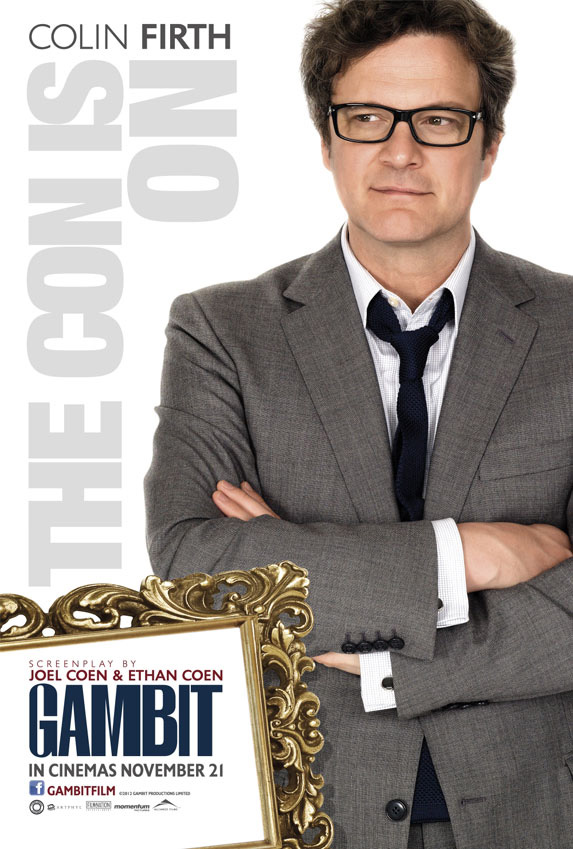
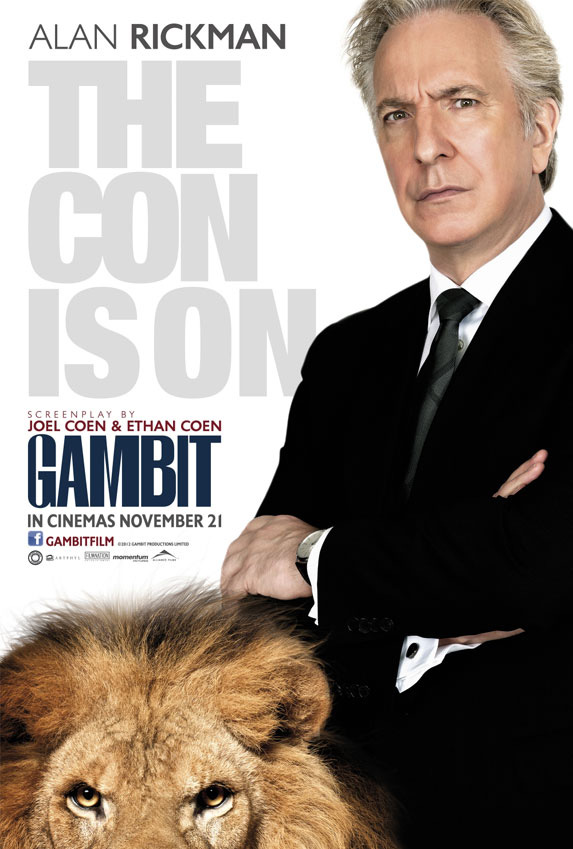
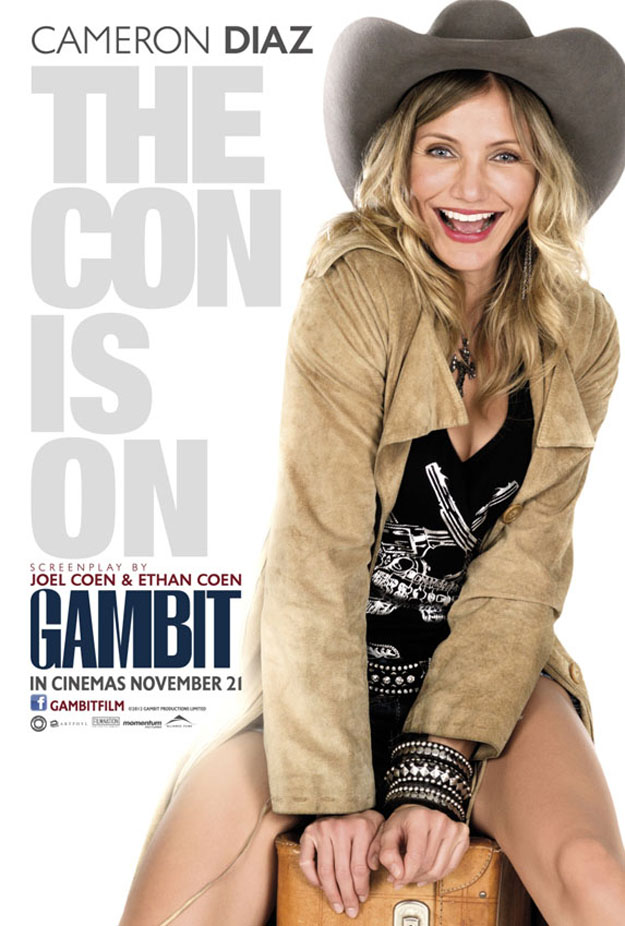
Haunting the Web Since 1999



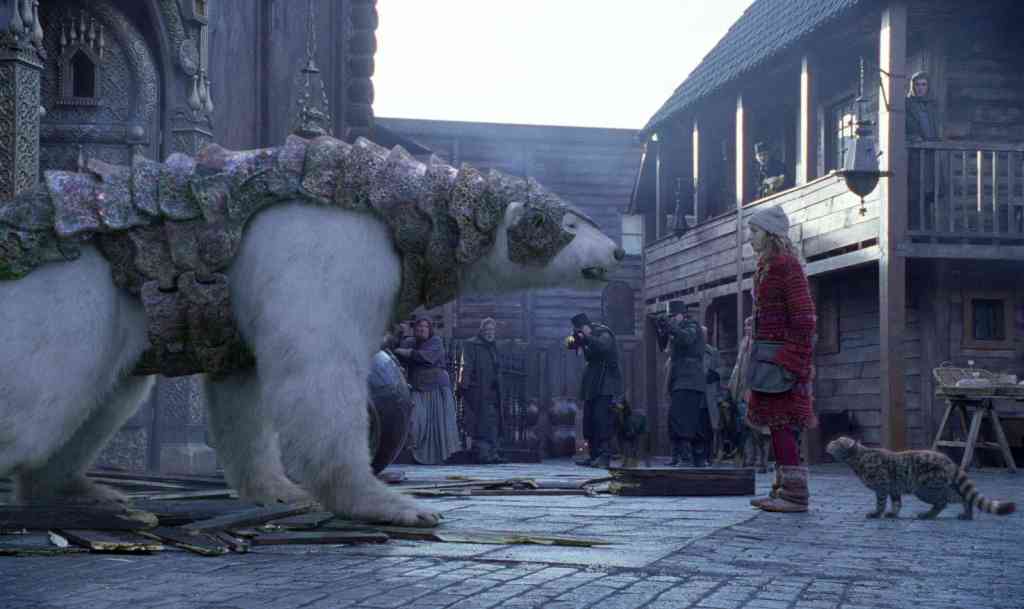
I was rooting for Weitz here: I quite enjoyed About a Boy and In Good Company (which he produced), and thought his leaving the film for awhile suggested he was aware of the epic scope the project required. And, while Pullman can be a stunningly self-inflated and ungracious sort, I thought the first book of His Dark Materials, before the trilogy bogged down in its own self-importance and anti-religious fervor, was a particularly good fantasy yarn. Alas, the movie as presented — I get the sense we may see another cut of it someday — does Pullman and Compass a severe disservice. All the subversiveness has been drained away from the story, and what we’re left with is virtually indistiguishable from any other B-level Rings clone. It’ll probably just be remembered the one with the polar bears.
Compass establishes its debt to Peter Jackson’s Rings films early — Like The Fellowship of the Ring, Compass begins with a “world as we know it” establishing prologue, setting up the conceits, the McGuffin, the good guys and bad guys, before keying in on one happy-go-lucky youngster who’s the focus of our story. The child in question is one Lyra Belacqua (Richards, good with what she’s given, and she avoids the cute-kid trap very well), an orphan living at Jordan College (i.e. the alternate-dimension version of Oxford). Lyra spends her days frolicing with the town children and getting into trouble with her daemon Pantalamion (Freddy Highmore) — In this world, you see, every person has their own animal-spirit companion which reflects their nature, following them around, sharing their pleasure and pain, and offering advice and conversation as needed. (This is quite different from our world, where my animal companion spends his days chasing his tail, barking at evil, and passing out on the couch.)
But Lyra’s world is about to come undone: Her free-thinking uncle, Lord Asriel (Daniel Craig, also quite good given the circumstances), has upset the ruling order of the Magisterium (Think the Vatican, except with Simon McBurney, Derek Jacobi, and Christopher Lee in tow) by arguing not only that parallel worlds exist, but that they might be accessible through the omnipresent interstellar medium known as Dust. And, when Asriel — now that the whole world looks Dusted — decides to continue his research in the polar North, Lyra herself gets caught up in the great events, particularly after an undercover agent of the Magisterium, one Mrs. Coulter (Kidman, seeming somewhat lost — she was better in Margot last week), takes a shine to her, and it is determined Lyra can read an ancient and powerful device known as an alethiometer, which invariably speaks truth to power. Is Lyra that child, the one prophesied to come by the witches of the North? Well, definitely maybe…
There are some elements of The Golden Compass that work rather well. As I said, Richards is an appealing presence, and it’s hard to imagine a better Lyra than her. Daniel Craig and especially Sam Elliot, as the aeronaut-cowboy Lee Scoresby, breathe much-needed life into the story in their brief moments onscreen. The daemons are for the most part cleverly handled, with particular plaudits for Mrs. Coulter’s vicious golden monkey (It really seems like it leapt off the page.) And most of the polar bear sequences, featuring Ian McKellen as the deposed bear-king Iorek Byrnison and Ian McShane as the evil usurper of the throne, Ragnar Sturlusson, are as good as one could hope for.
But McKellen’s inherently Gandalfian qualities further cement a comparison which doesn’t work in Compass‘s favor. If anything, Weitz’s film proves how important composer Howard Shore (like production designer Alan Lee) was to the success of the Rings trilogy. In Compass, as in Rings, characters are prone to describe places they’ve arrived at with a burst of description and a musical flourish. (“Svalbard, kingdom of the ice bears!“) But Alexandre Desplat’s score is so leaden and overbearing that it makes these bouts of exposition seem like, well, exposition. As a result, there’s much less magic in Compass than there should be — Like Chris Columbus’ first two installments of the Harry Potter series, Weitz’s film at best feels like a book on tape.
Or does it? Daemons and polar bears aside, the thing that made Compass an interesting read was Pullman’s subversive intent. In fact, I’ll admit to being more than a little curious as to how the heck The Subtle Knife and especially The Amber Spyglass, with its overtly Miltonic war against “the Authority” (i.e. God), was ever going to translate into a Christmas blockbuster. The answer the studio suits came up with, it seems, was to disembowel the film almost completely. Perhaps, given his haughty disdain for other authors’ fantasy works, Pullman even deserved to see his Golden Compass turned into an eviscerated Disney ride — Polar bears without the Coke. But fans of the book sure didn’t. Somewhere, somehow, somebody at New Line clearly decided that Compass needed to be more upbeat if it was going to make any money.
As a result, the ending of the movie, which cuts off a few chapters early (despite scenes of the Northern Lights in the trailer), was such a flagrant sucker-punch to the audience that I left completely disgusted with the film. If you’d never read The Golden Compass, you’d be hard-pressed to follow what’s going on anyway, or to give the overarching story the benefit of the doubt when it’s so often drowning in exposition. If you have read The Golden Compass, then you know how it ends, or will remember as it goes along, and don’t expect to see anything different. But, no, in keeping with its resolute ambition throughout not to offend anyone, Compass is (currently) given a syrupy, platitudinous ending before Lyra et al reach the Crack in the World. It’d be as if the Coens transformed the end of No Country for Old Men, or Joe Wright his new version of Ian McEwan’s Atonement, just to make it feel more upbeat and “viewer-friendly” and thus improve the box office. (In fact, if anything, it reminded me of the disrepect George Sluizer showed his audience with the feel-good American version of The Vanishing, which recently came up over at THND.) I was on the fence, leaning negative, about The Golden Compass up to that point. But those closing moments encapsulate most of what’s wrong with this saccharine adaptation. Say what you will about Philip Pullman — He’s definitely more fun with claws.
